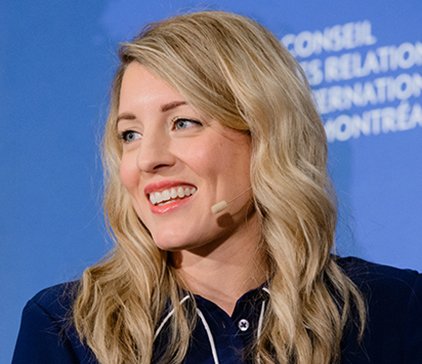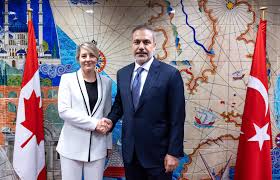Melanie Joly: A Key Figure in Canadian Foreign Affairs

Introduction
Melanie Joly, the current Minister of Foreign Affairs in Canada, plays a pivotal role in shaping the country’s international relationships and foreign policy. Her work is especially significant in a time when global dynamics are shifting rapidly, and Canada seeks to position itself strategically on the world stage. As a prominent figure in Prime Minister Justin Trudeau’s cabinet, Joly has been at the forefront of addressing pressing global issues such as climate change, security concerns, and trade negotiations.
Recent Developments and Achievements
Since taking office in 2021, Joly has been instrumental in fostering stronger ties with allies while addressing challenges posed by authoritarian regimes. In the wake of Russia’s invasion of Ukraine, Joly has actively participated in international discussions and has been a vocal advocate for imposed sanctions against Russia, supporting Ukraine’s sovereignty and territorial integrity. Her recent visits to NATO and G7 meetings illustrate her commitment to collaborative security and diplomacy.
Joly has also focused on the importance of climate action and sustainable development in Canadian foreign policy. In recent months, she announced initiatives aimed at boosting Canada’s investment in environmental technologies, thereby reinforcing Canada’s position as a leader in the fight against climate change. Her advocacy for Gender Equality and human rights has also garnered attention, emphasizing Canada’s commitment to promoting democratic values globally.
Public Perception and Future Outlook
Public response to Joly’s leadership has largely been positive, with many recognizing her efforts to enhance Canada’s global standing. Analysts note her effective communication skills and her ability to navigate complex issues, crucial traits for a Minister of Foreign Affairs. As Canada faces upcoming challenges in international trade and security, especially with tensions in the Indo-Pacific region, Joly’s strategic leadership will be vital.
Looking ahead, it is anticipated that Joly will continue to champion Canada’s interests on the global stage while addressing domestic concerns related to foreign policy. Her initiatives in strengthening partnerships with Latin America and the Caribbean suggest a shift towards more diversified foreign relations.
Conclusion
As Canada navigates a complex world, Melanie Joly’s role as Minister of Foreign Affairs is more critical than ever. Her proactive stance on key issues, alongside her commitment to human rights and climate action, positions her as a key player in shaping not just Canada’s foreign policy but also its identity on the global stage. As her tenure progresses, many will be watching closely to see how Joly adapts to new challenges and leverages opportunities to advance Canada’s interests internationally.









